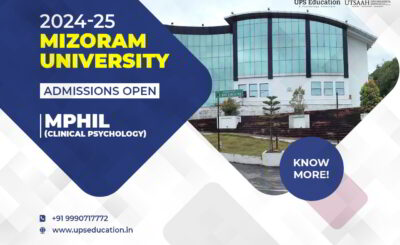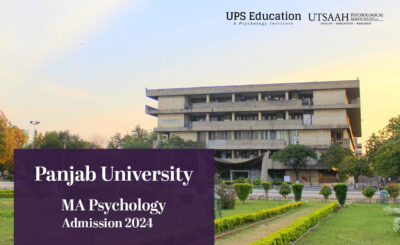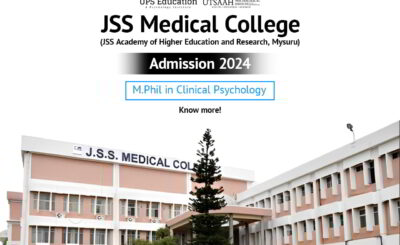![]()
The UGC NET/JRF is a nationwide examination aimed at establishing the qualifications of Indian citizens for positions as Assistant Professors and Junior Research Fellows (JRF), as well as Assistant Professors (NET), in universities and colleges across India. The University Grants Commission (UGC) has entrusted the National Testing Agency (NTA) with the task of organizing the UGC-NET. This examination is administered in multiple shifts, utilizing a Computer-Based Test (CBT) format.
The National Testing Agency (NTA) is entrusted with the responsibility of conducting the NET JRF exam, encompassing various aspects of exam administration to ensure fairness, transparency, and the smooth execution of the examination process. The primary responsibilities of the NTA are the release of applications, admit card issuance, conducting the exam, result declaration, answer key publication, etc.
Proper strategy, dedication and mentorship if required will make people successful in UGC NET JRF. NET/JRF exam needs rigorous practice, dedication, and continuous motivation; preparing in the right direction is the key of getting success. Learn more about the UGC NET JRF Psychology Entrance classes by UPS Education.
About NET/JRF Paper I
The UGC NET/JRF Paper I is a general paper for all the subjects. The primary goal of Paper I is to evaluate the teaching and research competencies of the candidates. The examination seeks to gauge both teaching and research aptitude. Candidates are anticipated to demonstrate cognitive skills, encompassing comprehension, analysis, evaluation, understanding of argument structures, and deductive and inductive reasoning. Additionally, candidates are expected to possess a broad awareness of teaching and learning dynamics within higher education. Furthermore, they should know the interplay among individuals, their surroundings, natural resources, and their influence on quality of life.
Click here to learn everything about the UGC NET/JRF Psychology Exam.
Practice
Paper 1 is crucial to crack NET, SET and JRF, but it’s not time-consuming and paper 2. Reading newspapers and practising are the only keys to scoring well on paper 1. Starting to read the newspaper for 15 minutes and practising all the sections individually is essential. You may practice using the UGC NET JRF Paper-1 book, where you can find more than 4000 questions with their explanations in digital format.
Syllabus for UGC NET/JRF Paper I
Each unit should have five questions, with each question worth 2 marks.
| Units | Topics |
| 1. | Teaching Aptitude Teaching: Concept, Objectives, Levels of teaching (Memory, Understanding and Reflective), Characteristics and basic requirements. Learner’s characteristics: Characteristics of adolescent and adult learners (Academic, Social, Emotional, and Cognitive), Individual differences. Factors affecting teaching related to: Teacher, Learner, Support material, Instructional facilities, Learning environment, and Institution. Methods of teaching in Institutions of higher learning: Teacher-centered vs. Learner-centered methods; Off-line vs. Online methods (Swayam, Swayamprabha, MOOCs, etc.). Teaching Support System: Traditional, Modern, and ICT-based. Evaluation Systems: Elements and Types of Evaluation, Evaluation in Choice Based Credit System in Higher education, Computer-based testing, Innovations in evaluation systems. |
| 2. | Research Aptitude Research: Meaning, Types, and Characteristics, Positivism and Postpositivistic approach to research. Methods of Research: Experimental, Descriptive, Historical, Qualitative and Quantitative methods. Steps of Research Thesis and Article writing: Format and styles of referencing. Application of ICT in research Research ethics |
| 3. | Comprehension A passage of text will be given. Questions be asked from the passage to be answered. |
| 4. | Communication Communication: Meaning, types, and characteristics of communication. Effective communication: Verbal and Non-verbal, Inter-Cultural and group communications, Classroom communication. Barriers to effective communication Mass-Media and Society |
| 5. | Mathematical Reasoning and Aptitude Types of reasoning Number series, Letter series, Codes and Relationships Mathematical Aptitude (Fraction, Time & Distance, Ratio, Proportion and Percentage, Profit and Loss, Interest and Discounting, Averages, etc.) |
| 6. | Logical Reasoning Understanding the structure of arguments: Argument forms, the structure of categorical propositions, Mood and Figure, Formal and Informal fallacies, Uses of language, Connotations and denotations of terms, Classical square of opposition. Evaluating and distinguishing deductive and inductive reasoning Analogies Venn diagram: Simple and multiple uses for establishing the validity of arguments. Indian Logic: Means of knowledge Pramanas: Pratyaksha (Perception), Anumana (Inference), Upamana (Comparison), Shabda (Verbal testimony), Arthapatti (Implication) and Anupalabddhi (Non-apprehension) Structure and kinds of Anumana (inference), Vyapti (invariable relation), Hetvabhasas (fallacies of inference) |
| 7. | Data Interpretation Sources, acquisition, and classification of Data Quantitative and Qualitative Data Graphical representation (Bar-chart, Histograms, Pie-chart, Table-chart, and Line-chart) and mapping of Data Data Interpretation Data and Governance |
| 8. | Information and Communication Technology (ICT) ICT: General abbreviations and terminology Basics of Internet, Intranet, E-mail, Audio and Video-conferencing Digital initiatives in higher education ICT and Governance |
| 9. | People, Development and Environment Development and environment: Millennium development and Sustainable development goals. Human and environment interaction: Anthropogenic activities and their impacts on the environment. Environmental issues: Local, Regional, and Global; Air pollution, Water pollution, Soil pollution, Noise pollution, Waste (solid, liquid, biomedical, hazardous, electronic), Climate change and its Socio-Economic and Political dimensions. Impacts of pollutants on human health Natural and energy resources: Solar, Wind, Soil, Hydro, Geothermal, Biomass, Nuclear, and Forests. Natural hazards and disasters: Mitigation strategies. Environmental Protection Act (1986), National Action Plan on Climate Change, International agreements/efforts -Montreal Protocol, Rio Summit, Convention on Biodiversity, Kyoto Protocol, Paris Agreement, International Solar Alliance. |
| 10. | Higher Education System Institutions of higher learning and education in ancient India Evolution of higher learning and research in Post Independence India Oriental, Conventional, and Non-conventional Learning Programs in India Professional, Technical, and Skill Based education Value education and environmental education Policies, Governance, and Administration |
Learn more about our Live interactive classes for UGC NET/JRF Entrance Preparations.
Click here to read more about the UGC NET/JRF Entrance Exam.
For the latest updates or any queries related to psychology entrance preparation, follow us on Instagram and Facebook.









